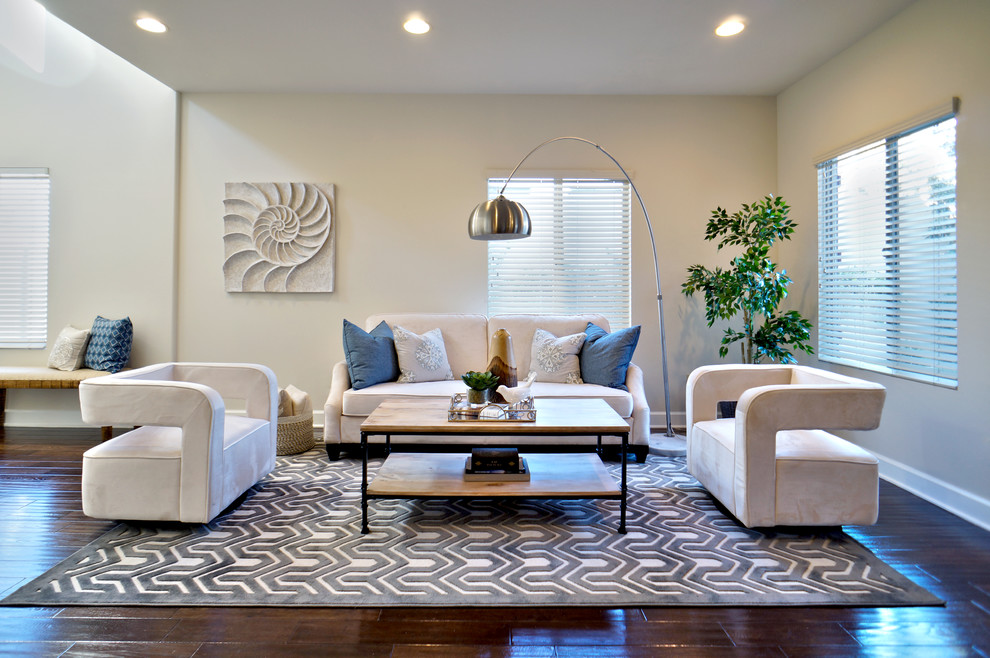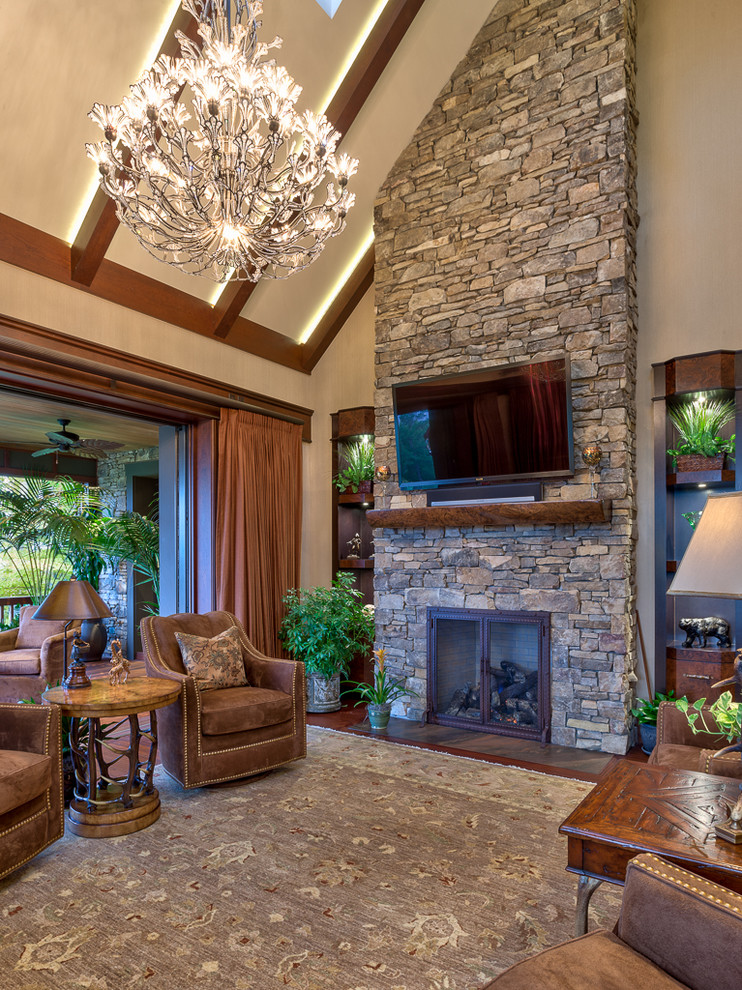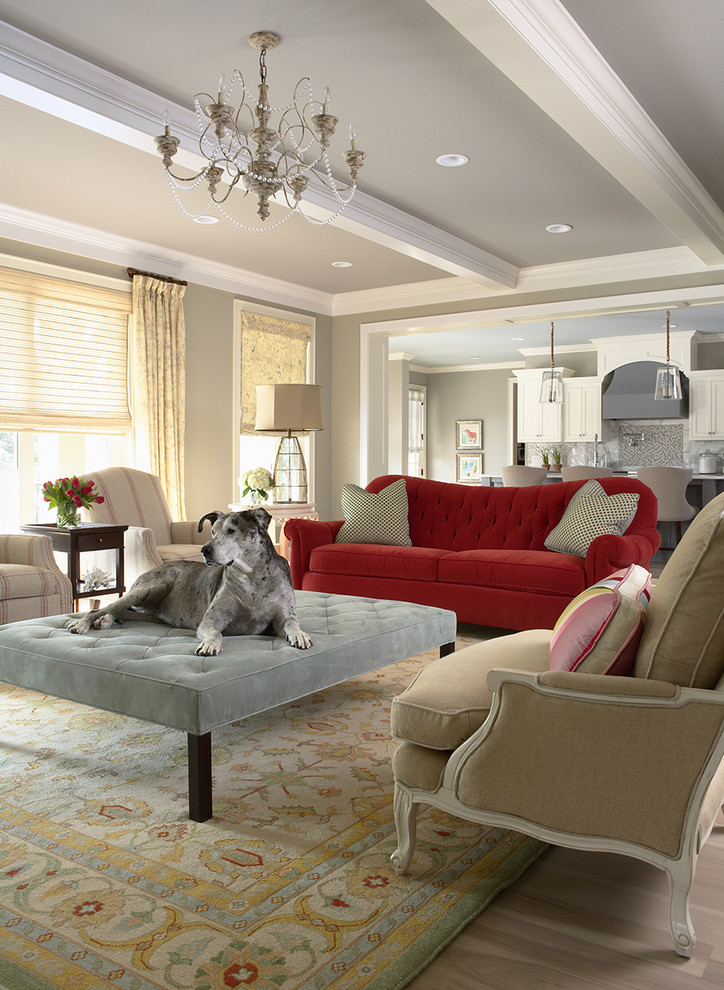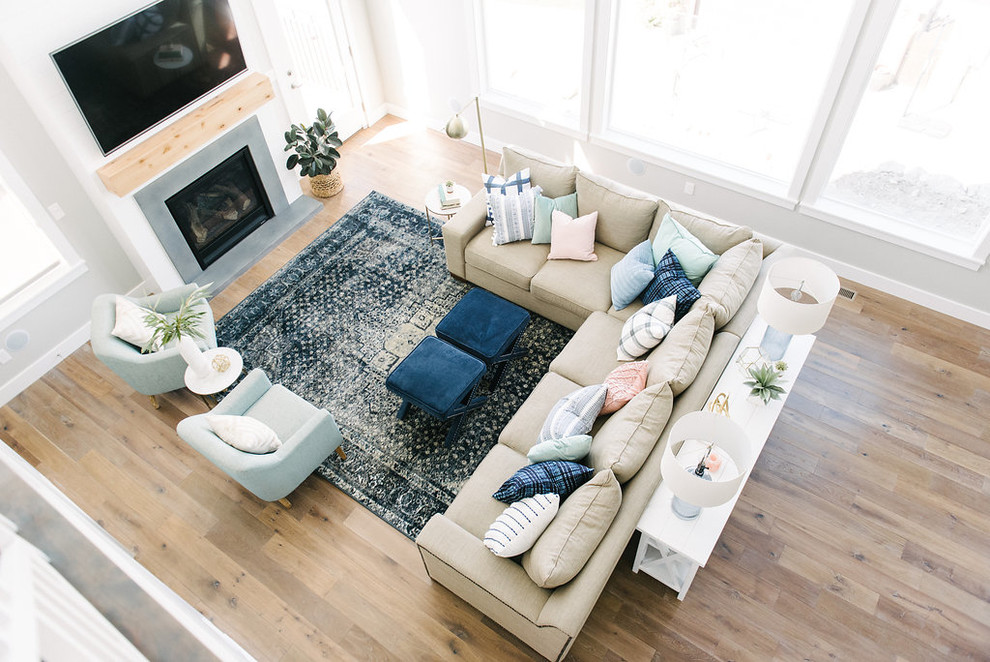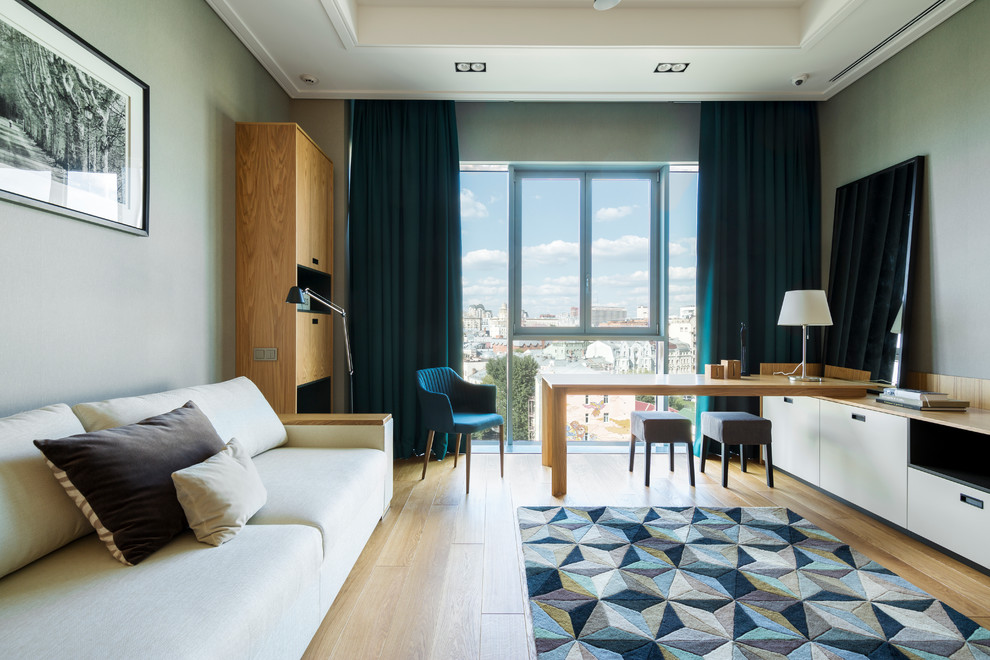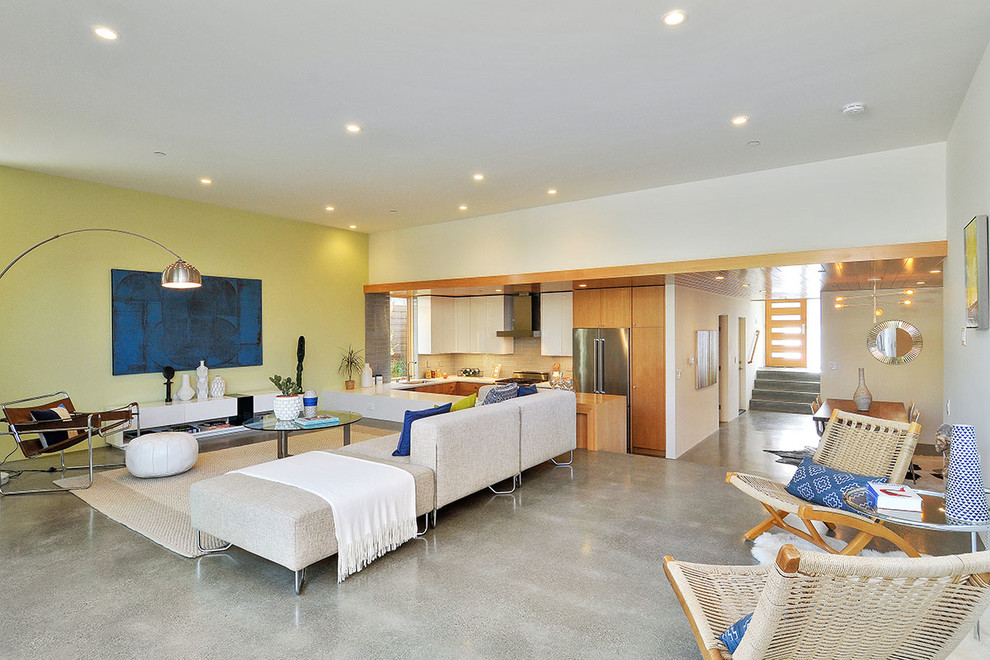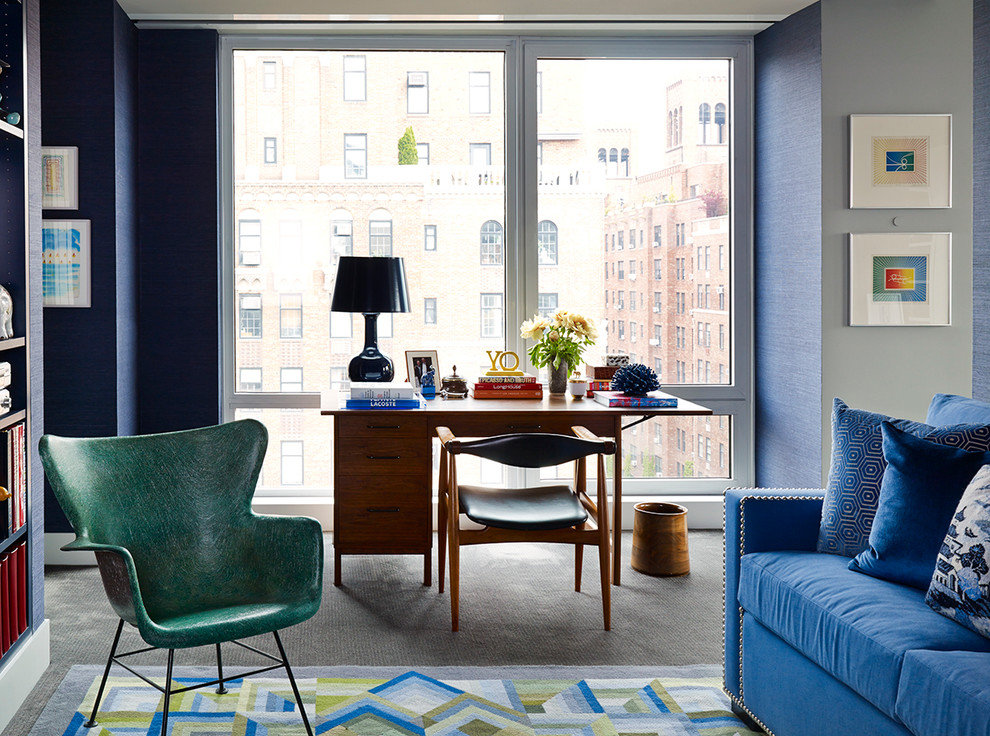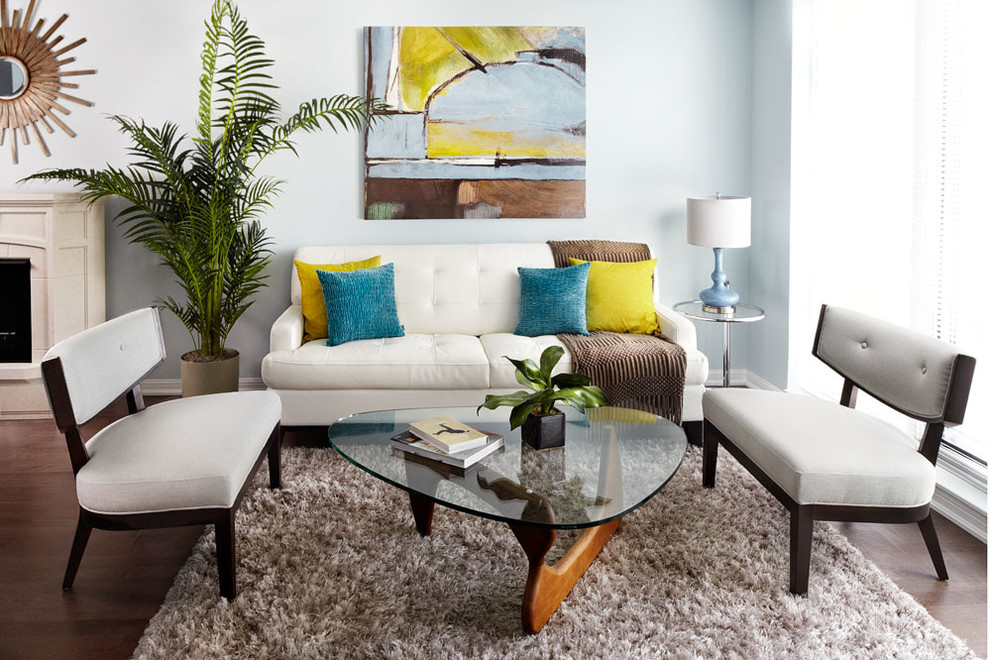There are a few places in your home where the family or guests are going to congregate, and the living room is one of those spots. In the past we’ve discussed decorating a home’s interior, but there are a few unique tricks to making a living room look great.
Follow the seven steps below to nail your living room décor without the help of an interior designer:
Step #1 – Research, Research, Research
Decorating a living room is no small undertaking. You don’t want to jump into it ill prepared because you risk dragging the process out and adding to the cost. Do your research first to come up with a game plan. Use Pinterist to save images of living rooms you like online, measure the room’s dimensions, and take an inventory of what you already own.
Photo by Hyelee Design & Staging Avenue
Step #2 – Come Up With a Design Theme
One of the first steps to decorating any room is to come up with a design theme. The theme will help guide the selections you make and ensure everything in the room ties together. A few examples of design themes include rustic glam, Texan, and Hemingway coastal cabin.
The theme exemplifies the concept or idea behind the design. Three important things to keep in mind when you’re selecting a theme are what the living room is used for, who uses it and the architectural design of the home.
Step #3 – Find a Statement Piece
Every living room should have a statement piece. That one focal point that adds wow-factor even if everything else is relatively standard. Your statement piece could be a beautiful piece of furniture like a Bernhardt sofa. Or it could be an ornate chandelier that you found at an estate sale.
Photo by Martha O’Hara Interiors
There’s no right or wrong when it comes to choosing a statement piece for your living room. The only must is that it stands out in a good way.
Step #4 – Create a Logical Layout
There’s a lot of activity in the living room, which means more thought has to go into the layout. The layout of a room affects the composition of the design as well as functionality. The first consideration for most living room layouts is where the TV will be located. This is going to influence where the coach and other seating will be located, which is going to take up a fair amount of floor space.
You also have to accommodate for walkways through the living room and the flow into other areas if your home has an open concept.
Step #5 – Color Coordinate
Color is a defining factor for interior décor. From the walls to the flooring to the furniture there are a number of things that must fit into the color palate. Start with the design elements you aren’t going to change like the floors. Use those elements as the basis for creating a color scheme that will look great from top to bottom. Professional designers recommend that an interior color scheme should include a neutral base color, primary color and accent color.
Next pick a paint color. It’s usually best to stick with a neutral shade that’s easy on the eyes. You may also want to consider painting an accent wall to give the room more visual interest and dimension.
Photo by Visual Jill Interior Decorating
Use the largest print in the living room to choose a primary color for other design elements like furniture and curtains. Go bold with your accent color so the smaller touches really pop.
Step #6 – Factor in the Entertainment Center
The living room is where the family gathers together to watch movies, sporting events and shows on TV. The entertainment center is often a focal point, which is why every interior decorator puts thought into how it will factor into the room’s décor.
You can go one of two routes: conceal the entertainment center or make it a focal point. Some homeowners conceal an entertainment center by making it blend into the décor. There are even motorized canvases that can drop down over the flat screen TV when it’s not in use. Regardless of the route you choose, keep the entertainment area clean and uncluttered since it’s bound to get a lot of attention when the TV is on.
Step #7 – Add Accent Pieces
The devil is in the details. Now that many of the big-ticket items are out of the way you can focus on adding accent pieces that give the living room character. Accents are where you can have fun and do something bold.
Photo by Jane Lockhart Interior Design
Since they’re small, accents can be eye-catching without distracting from the overall décor. When accents are done right, they help draw attention to statement pieces and accentuate the design theme. Throw pillows, rugs and framed family photos are accents that are commonly found in stylish living rooms.

